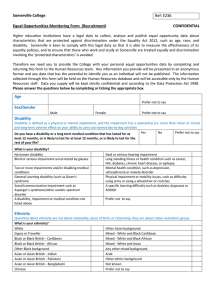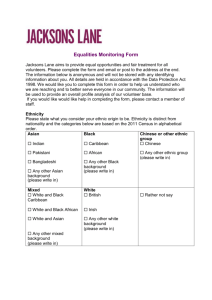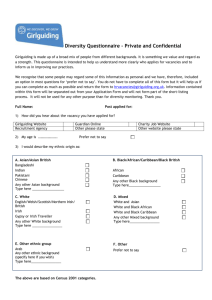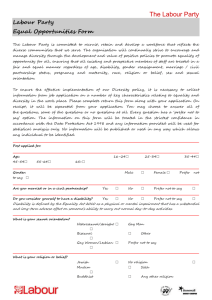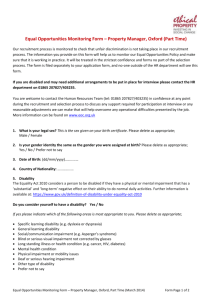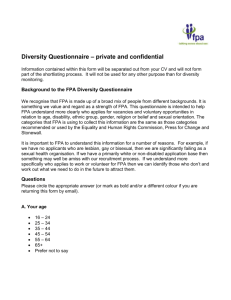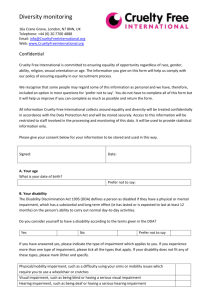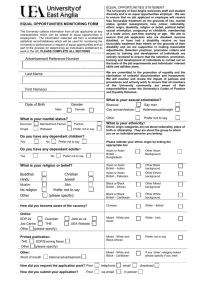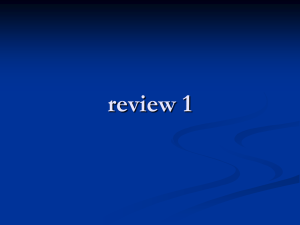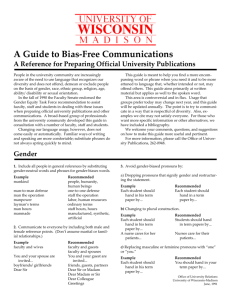HS07 | Framework monitoring form
advertisement
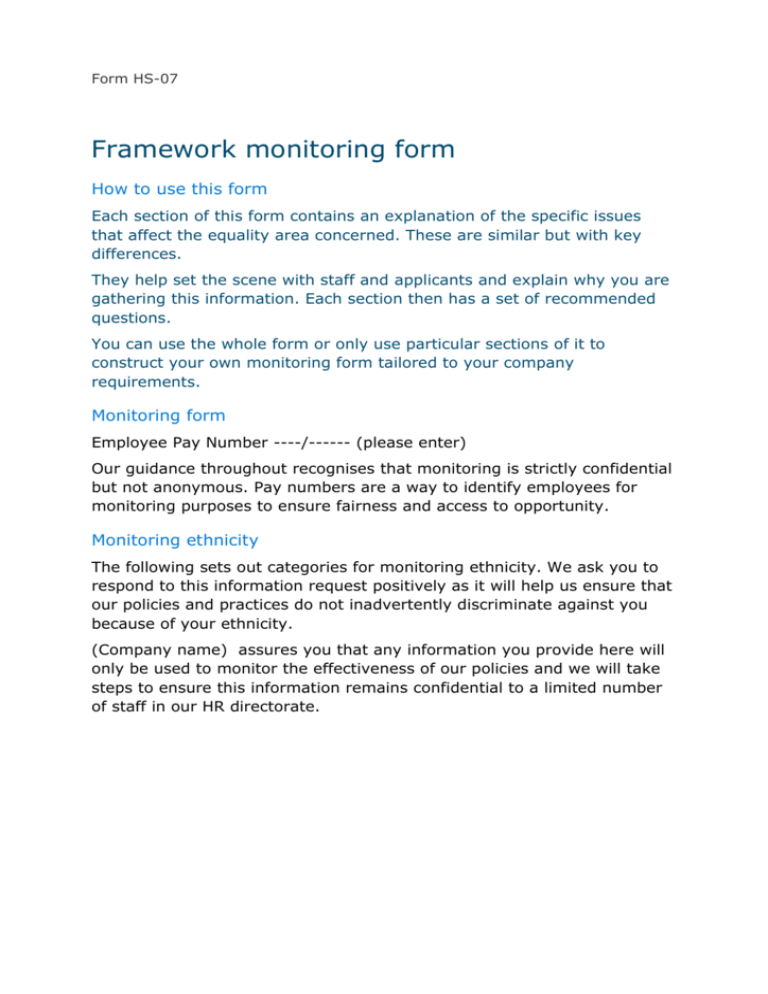
Form HS-07 Framework monitoring form How to use this form Each section of this form contains an explanation of the specific issues that affect the equality area concerned. These are similar but with key differences. They help set the scene with staff and applicants and explain why you are gathering this information. Each section then has a set of recommended questions. You can use the whole form or only use particular sections of it to construct your own monitoring form tailored to your company requirements. Monitoring form Employee Pay Number ----/------ (please enter) Our guidance throughout recognises that monitoring is strictly confidential but not anonymous. Pay numbers are a way to identify employees for monitoring purposes to ensure fairness and access to opportunity. Monitoring ethnicity The following sets out categories for monitoring ethnicity. We ask you to respond to this information request positively as it will help us ensure that our policies and practices do not inadvertently discriminate against you because of your ethnicity. (Company name) assures you that any information you provide here will only be used to monitor the effectiveness of our policies and we will take steps to ensure this information remains confidential to a limited number of staff in our HR directorate. Monitoring questions: How would you describe yourself? Choose ONE section from A to E, and then tick the appropriate box A Asian or Asian British Bangladeshi Indian Pakistani Any other Asian background, please write in box ....................... B Black or Black British African Caribbean Any other Black background, please write in box ....................... C Chinese or other ethnic group Chinese Any other, please write in box ....................... D Mixed Heritage White and Asian White and Black African White and Black Caribbean Any other Mixed background, please write in box ...................... E White British English Irish Scottish Welsh Any other White background, please write in box ...................... F Prefer not to say Disability monitoring To make positive changes, (Company name) wants to address the different barriers faced by disabled people. Many people who do not consider themselves to be disabled may be covered by the Equality Act 2010 because they have a health condition that has an impact on their lives. What do we mean when we say disability? Do you have a physical or mental impairment? Is it long term? Does this make it difficult for you to do the things that most people do on a fairly regular and frequent basis? If so, you may have rights under the Equality Act 2010. This includes people who are receiving treatment or using equipment (except glasses or contact lenses) that alleviates the effects of an impairment or a condition, people with an impairment or condition that is likely to recur, people who have conditions that will get worse over time and people with severe disfigurements. Employees with a disability or health condition are entitled in law to ‘reasonable adjustments’ to address their needs for support in the workplace. Therefore we are interested in any disability or health condition that may require a reasonable adjustment to overcome any such barriers. Monitoring questions: Do you consider yourself to have a disability or a long-term health condition? Yes No What is the effect or impact of your disability or health condition? Prefer not to say If you would like to discuss your response, or are unsure of the types of reasonable adjustment that might be possible, please contact your manager who is trained to help and support you. (Company name) is committed to creating an environment where barriers are removed for disabled people and they can give of their best to succeed in our organisations. (Company name) gives a commitment that this information will remain confidential within HR. Gender monitoring Concentrations of either men or women into certain jobs, the impact of family commitments are some reasons why men and women experience the workplace differently. Gender monitoring is key to ensuring that all employees have access to the same opportunities and (Company name) is committed to work at achieving this. Monitoring question: Would you describe yourself as: Male Female Prefer not to say Sexual orientation Monitoring sexual orientation in our staff and in our recruits is a significant step towards acknowledging gay, lesbian and bi sexual staff within (Company name) . (Company name) seeks to become an exemplar employer and make sure our processes and practices are fair to all staff. Please help us and do this by completing the following questions around your sexual orientation. Monitoring question: What is your sexual orientation? Bisexual Gay man Gay Woman / Lesbian Heterosexual / Straight Other Prefer not to say (Company name) will only use this information for ensuring its staff policies work fairly for all and that your sexual orientation does not count against you. We will ensure in any analysis that is made public that it will not be possible to identify you. Age monitoring We all have an age. Age discrimination regulations in the workplace are designed to ensure that you are judged only by your abilities and not your age. Greater experience does not always associate itself with greater ability and neither does older age and inability to learn new skills. By monitoring age we seek to uncover these and other assumptions in the way we work in (Company name) . We intend to set up a database to review and adjust annually for age. To help us confirm your age please state your date of birth. Monitoring question: What is your Date of Birth? --/--/---- (dd/mm/year or age bands – see Acas guidance on Age and the workplace) Religion and belief Whether or not you have a religion and what you do or don’t believe in is likely to make difference to you and how you perceive the world. These perceptions are carried across into our workplaces. It is said by some that what you do or don’t believe is a private matter that should have no effect on your job. It is indeed a private matter but it would be disingenuous to say that it had no effect on your employment. For example, (Company name) running training events or promotion panels during periods of religious fasting for some colleagues may well place them at a disadvantage in these instances. (Company name) is committed to ensuring fairness and equal access to all employees whatever their faith or beliefs. Below is a list of religions that are the most commonly found in Britain. They are listed in alphabetical order and not intended to signify rank in terms of importance, furthermore we acknowledge that the list is not exhaustive and if your religion is not specifically listed then we ask you not to take offence as none was intended. Monitoring question: Please tick the box that best describes you: Buddhist Christian Hindu Jew Muslim Sikh Other Religion or Belief (please state) ............................ No Religion Prefer not to say


